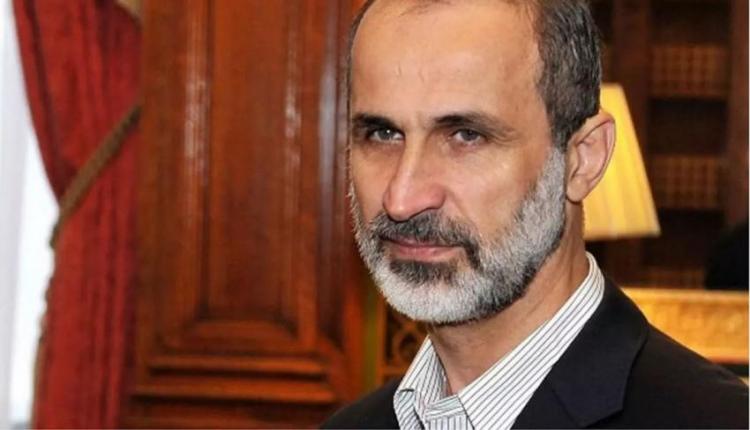Days after Caesar Act implementation, Russia met with Syrian opposition leader
DOHA, Qatar (North Press) – Russian Deputy Foreign Minister Mikhail Bogdanov's visit to Qatar’s capital Doha, and his meeting with former Syrian National Coalition (a Turkish-backed Syrian opposition coalition) leader Moaz Khatib raised several questions about its time, its goals, and its relation to the Caesar Act.
In a statement on its twitter account on June 23, the Russian Foreign Ministry said that a meeting took place with Moaz Khatib in which they discussed the situation in Syria, focusing on the prospects of a political settlement based on Security Council Resolution No.2254.
Samer Elyas, a political analyst in Russian Affairs, told North Press that “the meeting took place during a visit of President Putin's Special Representative to the Middle East and North Africa region.”
“They chose Qatar because Bogdanov was in the midst of an official visit during which he met separately with Khatib and Hamas leaders, within consultations held by Russia with political powers with whom it has relations in the Middle East,” he added.
Elyas pointed out that Bogdanov always intends to meet with representatives from the Syrian opposition and Syrian government, as he has held thousands of meetings with them since 2011.
Suitable solution
Observers see that Russia seeks a solution which suits its interests before the end of the year and the formation of a new American Administration. In this case, Russia will be the greatest loser in terms of economy.
“Russia intensified its efforts to fulfill a political settlement which suits its interests…it does not want an exact and immediate implementation of UN Resolution 2254, rather, it may form a government which includes members of the Syrian opposition and government, with limited reforms of the security apparatus and military,” Elyas said.
He added that Russia may have discussed this issue with Khatib, due to his lack of a firm stance on political issues, and did not deal with militarization matters so much, which is a preferable subject for Russia.
Khatib visited Moscow several times and discussed a number of initiatives and proposals with the Foreign Ministry, but they were not implemented because of the Syrian government's obstinacy, according to Elyas.
Intense meetings with Syrian opposition
Russia will intensify its meetings with the opposition in order to reach a political solution to reduce the sanctions’ effects on the government, or it may set several initiatives for the political resolution.
The Caesar Act obstructs Russia from reaching a political solution that suits its interests and ambitions of controlling the reconstruction, and rebuilding Syria’s economy.
Elyas sees that Russia post-Caesar Act is embarrassed, so it will set new initiatives for the political solution, if it wants to enrich its political and military achievements in the interest of Syrian government in the future and if it does not want to be as same as Afghanistan, because other parties can become involved in such issues and the poor economic condition in Syria can change the situation.
Leaks about the meeting
Some sources leaked parts from the discussion between the Russians and Khatib, in which Russia suggested a Presidency of a national unity government with wide powers, with Bashar Assad as the president, who would have the right to be re-elected one more time. Additionally, Russia insisted on the survival of the security apparatus.
Khatib and his team did not accept the Russian proposal; rather, he suggested some notes and requests to be studied by Russia, and he and his team are responsible for clarifying its details.
The first meeting was held in a hotel in Doha, but the next day the hotel rejected to renew the booking, so the meeting took place in Khatib’s home.
The sources pointed out that the Qatari Ministry of Foreign Affairs allowed the meeting to be held in the building of the Ministry, as they were negotiations rather than discussions.
If Russia accepts Khatib’s requests and is serious about the initiatives, they may continue the negotiations and hold a new meeting.
Caesar Act effects
Syrian political analyst Abd Razaq Hussein told North Press that the matter may be related to the Caesar Act and its local and global effects on the Syrian regime and its figures, that means to stop the regime from interaction with other powers.
He added that Russia is scamming the Geneva Convention through keeping Assad as the president, though the UN is pushing for change in the way the Syrian government rules the country.
Why Qatar?
In Qatari territory, a balance in the powers that are active in the Syrian crisis is achieved, and the opposition’s embassy is based there.
At the same time, Iranian presence in Qatar and the political understanding about Syrian affairs, and even Qatari internal affairs, grants it protection from neighboring countries and good relations with Turkey.
So why did Khatib and the Syrian Islamic Council (the chief Sunni religious authority among the Syrian opposition) participate?
“We see members and religious institutions that make decisions according to their interests, not the needs of the country. What is most important…are charities and industrial and commercial relations,” said Hussein.
He added that Khatib left the opposition government, as he resigned, while all his initiatives served the Syrian government regardless of his religious attitude.
Late in 2014, Khatib revealed his visit to Moscow in which he met Russian Foreign Minister Sergey Lavrov, where they discussed the political solution and the mechanism of political transition in Syria.

